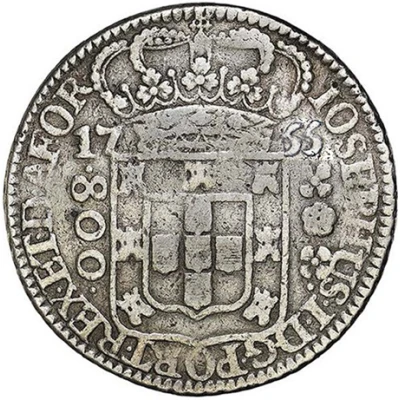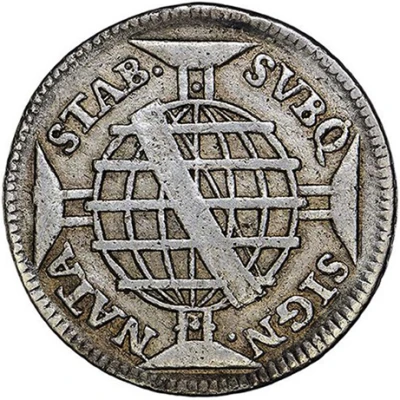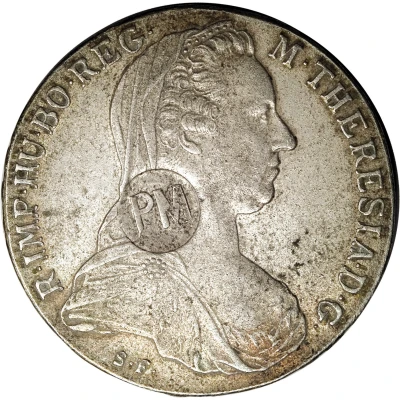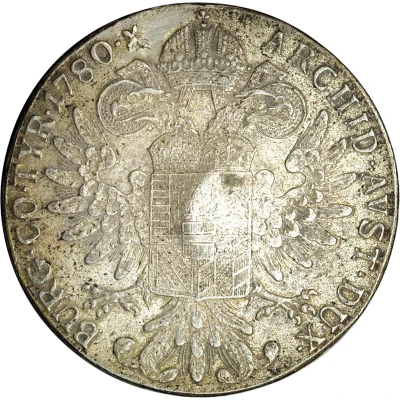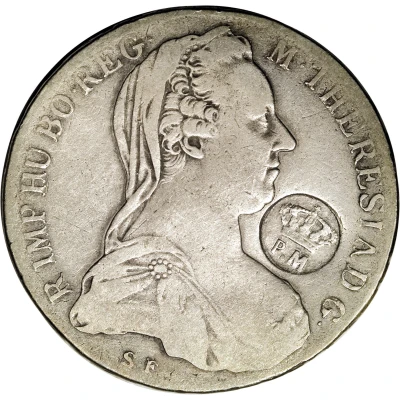
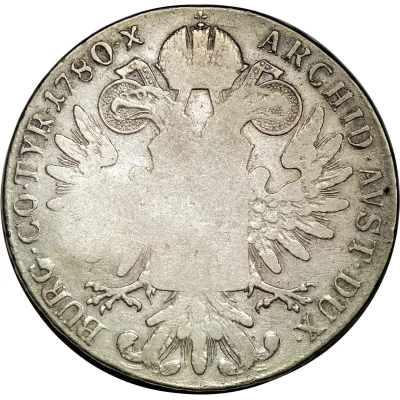

© Heritage Auctions
920 Réis Countermark "Crowned P.M" over 1 Thaler/Austria ND
1889 year| Silver (.833) | 28.0668 g | 41 mm |
| Issuer | Mozambique |
|---|---|
| King | Luís I the Popular (1861-1889) Charles I the Diplomat (1889-1908) |
| Type | Standard circulation coin |
| Year | 1889 |
| Value | 920 Réis |
| Currency | Real (1706-1910) |
| Composition | Silver (.833) |
| Weight | 28.0668 g |
| Diameter | 41 mm |
| Shape | Round |
| Technique | Countermarked |
| Orientation | Medal alignment ↑↑ |
| Demonetized | Yes |
| Updated | 2024-10-06 |
| Numista | N#28659 |
|---|---|
| Rarity index | 91% |
Reverse
Script: Latin
Comment
In 1864 the coin called "Maria Teresa" was officially accepted for circulation with a value of 920 Réis. In January 1887 the value was changed to 860 Réis.According to reports from the colony's government, the value varied from place to place and this caused disruption in trade. Even the Banco Nacional Ultramarino notes were subject to a premium.
The countermark "Crowned PM" was instituted by the "NOTICE FROM THE BOARD OF FAZENDA of 05JAN1889".
A box with 40 punches, small anvils and hammers was sent from the Lisbon Mint.
Due to heavy use they quickly became inoperable.
Given the urgency, they were replaced by the stamp "PM" as there were no engravers in the colony that could do a better job (NOTICE FROM THE BOARD OF FAZENDA of 19JAN1889).
The stamp continued to be used under King Carlos and, traditionally, Portuguese catalogs "arrange" coins with this stamp during the reign of this last king.
Due to its crude manufacture, it was largely counterfeited at the time, and its counterfeiting continues today.
Interesting fact
One interesting fact about this coin is that it was issued during the period of Portuguese colonial rule in Mozambique, and it features a unique countermark, the "Crowned P.M" over 1 Thaler/Austria, which was applied by the Portuguese authorities to indicate that the coin was valid for circulation in Mozambique.
